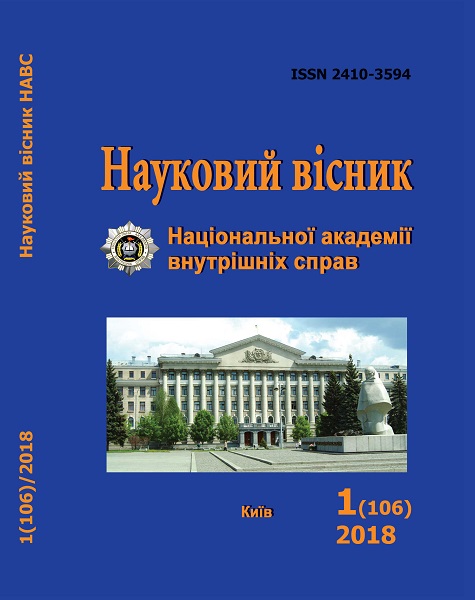Language Factor of Legal Reform: Theoretical Aspect
Abstract
The theoretical aspect of the language factor of legal reform taking into account the linguistic situation in Ukraine is considered in the article. The essential properties of the language of law as the source of the matter of legal changes are characterized. It has been established that the language of law is a special kind of national literary language adapted to the conditions of functioning in the field of legal communication. Without the language of origin, development and other manifestations of the existence of law are impossible.
The language of law is the primary means of changing the law, in particular its form as a legal reform. In turn, the law to a special social and cultural phenomenon and actively change the language by adjusting linguistic relations, defining the state language policy and language changing situation.
The problems of legal reform were updated by defining the approaches in the legal literature to understand it. The variety of approaches to interpreting legal reform leads to the existence of its various definitions, each of which is the result of an understanding of a certain aspect of legal reform, and none of them is an obstacle to the possibility of all others. Significant updating of the problems of legal reform is conditioned by the actual cognitive tasks of the modern general theoretical legal science, as well as the practical needs.
The generalized concept of the theoretical image of legal reform as a form of significant, progressive legal changes, reorganization of law necessarily involves qualitative linguistic design and provision of these legal transformations.
The manifestations of the dialectical relationship and the interaction of the language of law and legal reform are analyzed, taking into account the results of the reformation and language policy in Ukraine. The essence of the language factor of legal reform lies in the fact that, on the one hand, the language of law directly influences and determines the quality and effectiveness of the implementation of legal reform, and on the other – the latter covers the transformation of linguistic legislation, taking into account the existing linguistic situation in Ukraine. Thus, the result of the proper realization of the functions of the language of law (communicative, regulatory, cognitive) is linguistic excellence, the perfect legal changes, clarity and support for legal reform in society. In its turn, the legal reform necessarily involves updating the language legislation in order to determine the status and order of functioning of the Ukrainian language as a state language and the use of other languages in Ukraine.Downloads
Abstract views: 88 PDF Downloads: 40
- Authors reserve the right to authorship of their own work and transfer to the magazine the right of the first publication of this work under the terms of the Creative Commons Attribution License, which allows other persons to freely distribute published work with mandatory reference to authors of the original work and the first publication of an article in this magazine.
- Authors have the right to enter into separate additional agreements on non-exclusive dissemination of the work in the form in which it was published in the journal (for example, to post an article in the institution's repository or to publish as part of a monograph), provided that the link to the first publication of the work in this journal is maintained.
- The journal's policy allows and encourages the posting of articles by authors on the Internet (for example, in electronic storehouses of institutions or on personal websites), both before the submission of this manuscript to the editorial office and during its editorial processing, as this contributes to the creation of a productive scientific discussion and positively affects the efficiency and dynamics of citing the published work.




